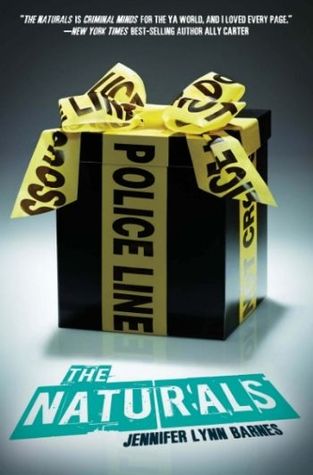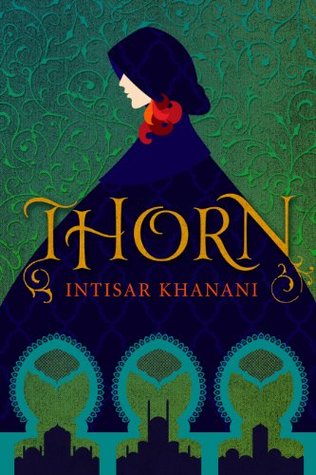~1~
Pastors is interesting folks.
So is Doctors.

Image courtesy of Joseph Mankin via stock.xchng
Seems to me that they are trained (by their experience?) to question the motive and perceptions of anyone who comes to them.
I happen to have a very good track record and set of references that affirm my reliability as a narrator and communicator, but talking with a new doctor or a new pastor always leaves me shaken, because I have only met two (maaaybe three) in the last few years who treat me as though I know what I’m talking about.
Oh they’ll listen, they’ve all been decent at their core job (knowing what they’ve studied), but if I treated my interview sources the way these culturally respected individuals treat me… I don’t think anybody with decent self-esteem would give me a second interview.
~2~
We’re all special, unique snowflakes — just like everybody else.
Sure you think you’re the exception, but everyone does, so how do you know you really are if *everybody* thinks they’re the special one?
Well, study and statistics help a bit. That way when peeple sez you don’t know whatcher talkin about, you know you do. It doesn’t mean they’ll let you educate them, but it means they can’t un-educate you.
Which I’ve found is worth a surprising-lot.
It also helps to know what you expect (or want, or need) as the result of this specialness.
- To be noticed?
- Weeeelll, I think you’re still going to go out and do something cool.
- To find extra help or understanding?
- This is where it can get tricky, and all I can suggest to you is ask for it, and if that person acts like you’re too big for your britches, or you’re not worth their time (even if they’re a doctor or pastor), ask someone else.
And keep asking.
Footnotes:
A: If you’re a jerk and don’t know it, things are always going to be hard for you (but harder for those around you).
B: If you’re not a jerk, you might still get treated like one for having different needs than the people around you want to meet, but you have every right to seek legitimate ways to meet your needs.
~3~
From Shiftless (not the best werewolf book I’ve ever read, but this got a reaction from me):
I’d spent the morning helping my stepmother prepare the day’s bread…. Later we hung sheets out on the line to dry… each task provided immediate gratification that had been lacking in my previous life. Now a traitorous part of my mind told me that perhaps my father had my best interests at heart all along – maybe this simple women’s work was what I’d been born for…
Which reminded me of the very worst part of my voluntary incarceration. I was beginning to understand how to be content here…
My hands went cold when I read that bit. It felt scary and familiar, and not because I don’t think bread-making a worthy art.
It was disturbing because I heard a similar message for a long time, that this small sphere of action and love should be enough to satisfy me. If it didn’t feel like enough, that proved some defect of character in me. A flaw in my spirituality. A misunderstanding of my identity.

Image courtesy of Cris Watk via stock.xchng
I would get tired, often, of the unending nature of treading water, trying to rise above or “escape” its confinement.
Occasionally I would surrender, hold my breath, and just let the water, this limited world, cradle me – I could feel the relief of rest, believe for a time that there was nothing else I was made for.
It was peaceful.
So peaceful.
But I am a creature of air and of light. Though I can paddle when I must, I was not made to live underwater.
A huge part of my growth and peace has come from finding different times and places and ways to meet my needs along with my family’s. And to trust that sick feeling that warns me I’ve swallowed too much seawater.
~4~
Years ago I attended a seminar that was aimed largely at “middle class” folks who wanted to help people “stuck in poverty.” Part of the presentation included examples of how different classes responded to common experiences.
For example, food. Each class has a question about food that is either irrelevant or secondary to the others:
- The poor: “Is there enough?”
- Middle class: “Does it taste good?”
- The rich: “Is it pretty?”
The presenter gave six or eight sets of examples before someone asked, “Why are you bringing in ‘rich people’? None of us here is rich.”
She smiled like she’d been waiting for the question and said, “The way you feel about that ‘rich’ category, that their assumptions are unnecessary – and maybe even a little ridiculous – that is the extravagance of the middle class to the truly poor. You have to understand this gap in mindset and definitions of a good life if you are really going to reach them.”
I don’t know about anybody else, but (while I have a heart that burns when I look at the effects of poverty and racism) I seem to have such a hard time finding and figuring out my culture, I’m terrified at trying to “reach out” to those unlike me.
This is not about “comfort zone.” I am uncomfortable all. the. time.
This is me recognizing I’m clueless, and have no point of reference to turn around (as with an understanding of grammar when learning a new language) and have a framework to start from.
Maybe that is an unwarranted fear. Maybe “I don’t need anything but love,” but since even love takes different forms, I’m thinking, no. I don’t know what it is, but I need some kind of starting place.
~5~
Most people are not logical.
This is why logic is something that actually needs to be taught.
But most people think they are logical.
It’s rather like “specialness” that way.
In the 1970s (according to the book Thinking Fast and Slow) researcher-types based their hypotheses on the assumption that human beings are fundamentally logical in their thinking and behavior.
After a few decades of studies, researchers don’t think that way anymore.
To say someone is not logical comes across as an insult, but really, it’s a bit like belittling a horse by saying it has no opposable thumbs.
It is a pejorative statement, but it references an inherent limitation that can (in theory) be worked with, or got around.
For example, don’t create a situation where you need a horse to peel an orange.
(Okay, that implies people can’t even learn to be logical, which isn’t my ultimate point– but it still makes me laugh after a dozen passes, so I’m keeping the image.)
I wish someone had told me this sooner. I might not have lost so much time trying to understand how complementarians and bible literalists can display more conviction than their reasoning supports.
I really used to think I was missing something.
~6~
Maybe because I am personally safe from the dangers connected with poverty and racism, this is what threatens me the most:
Religious people of influence who claim both to offer women freedom in the church (involvement opportunities, leadership responsibilities, and “we’ll listen to you” responses, so your run away as fast as you can radar doesn’t go off) but restrict women from the highest roles that would include teaching men because, OBVZ: the Bible says no right here!
This actually scares me, because it tends to come from people who highly value the Word of God, and yet contains inconsistencies. “Plain reading” of scripture also has women wearing headcoverings as a sign of their godliness, women being fully silent in church, and women not communicating with any male she’s not related to. Stuff these generous people don’t emphasize.
I have asked multiple conservative Christian leaders:
What safeguards are in place to prevent bible-lovers from becoming more restrictive in their application of plain scripture?!
This is a question that has literally kept me awake at night when trying to navigate new church environments, and it is the major element that turned me away from the complementarian view I embraced most of my life, practically pushing me into being egalitarian instead.
~7~
1 Timothy 2:12 is the main verse used in opposition to the idea of women in all levels of leadership, and I love what this guy points out:
“This one verse is the lynchpin in the entire complementarian argument, [but] it is an important principle of interpretation that we NOT build entire systems of theology upon a single verse.”
(He addresses another biggie from 1 Corinthians, too.)

Image courtesy of Piotr Bizior via stock.xchng
And for the people who say (as has been said to my face) that “plain-scripture” is what we should live by, and if you need to “interpret” a passage to get to your meaning, that invalidates the argument (makes the explainer not worth listening to) — please read 1 Peter 3:21.
I’ll remove the suspense: it plainly says that baptism saves us, which protestants don’t believe because we give more emphasis to other passages of scripture.
This is the way of all Christians — including those who will or won’t affirm women at all levels of church leadership: we have a gut sense of right and wrong, we take it to the bible, and let that sense be informed and deepened (and I hope corrected) by what we read and study.
There are still a whole lotta Catholics, many who are really neat people and I’m thankful to know them. In the same way I expect there will always be people who (in good conscience) never accept women as affirmed by God to lead.
I continue to pray my daughters won’t marry one of them, and my son never becomes one. This because the attitude that allows you to look at gender before spiritual gifting is an invitation to quench the Spirit of God at work in an individual.
I don’t question that we are all believers (till someone crosses the line that excuses abuse).
I do think that Catholics are Christian, too, but I can’t make the full leap, “convert,” and be one of them. They believe/emphasize certain things that I cannot affirm, and that would actually undermine my faith and practice if I were to embrace them.
This same awareness is why I am (and teach my children to be) egalitarian, and, in a nutshell, that’s why I left my old church.
 This started because when I was in Antarctica (November/December 2014) and we finished our day’s work [read: quit before our arms fell off so we could still dig the next day], we had a stretch of down-time, and I had some novels in my Kindle app that I’d never gotten around to.
This started because when I was in Antarctica (November/December 2014) and we finished our day’s work [read: quit before our arms fell off so we could still dig the next day], we had a stretch of down-time, and I had some novels in my Kindle app that I’d never gotten around to.
 A year ago I started looking for good self-published books to read, and
A year ago I started looking for good self-published books to read, and 










 I had to have enough conviction for the whole family when I knew it was depression. That effort on top of the grief, guilt, and personal disappointment was so draining, I couldn’t do anything beyond the naming. I felt helpless, and was
I had to have enough conviction for the whole family when I knew it was depression. That effort on top of the grief, guilt, and personal disappointment was so draining, I couldn’t do anything beyond the naming. I felt helpless, and was 